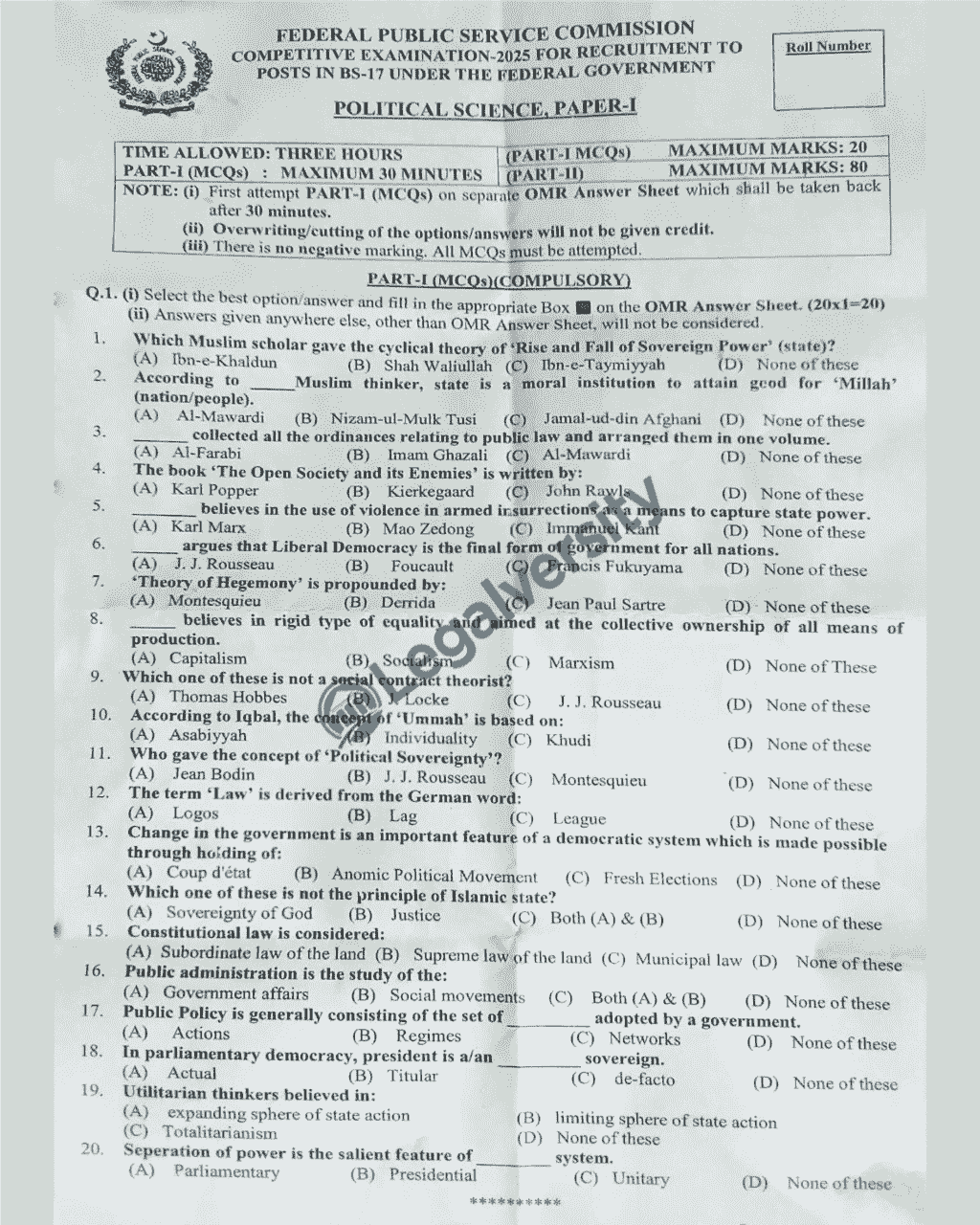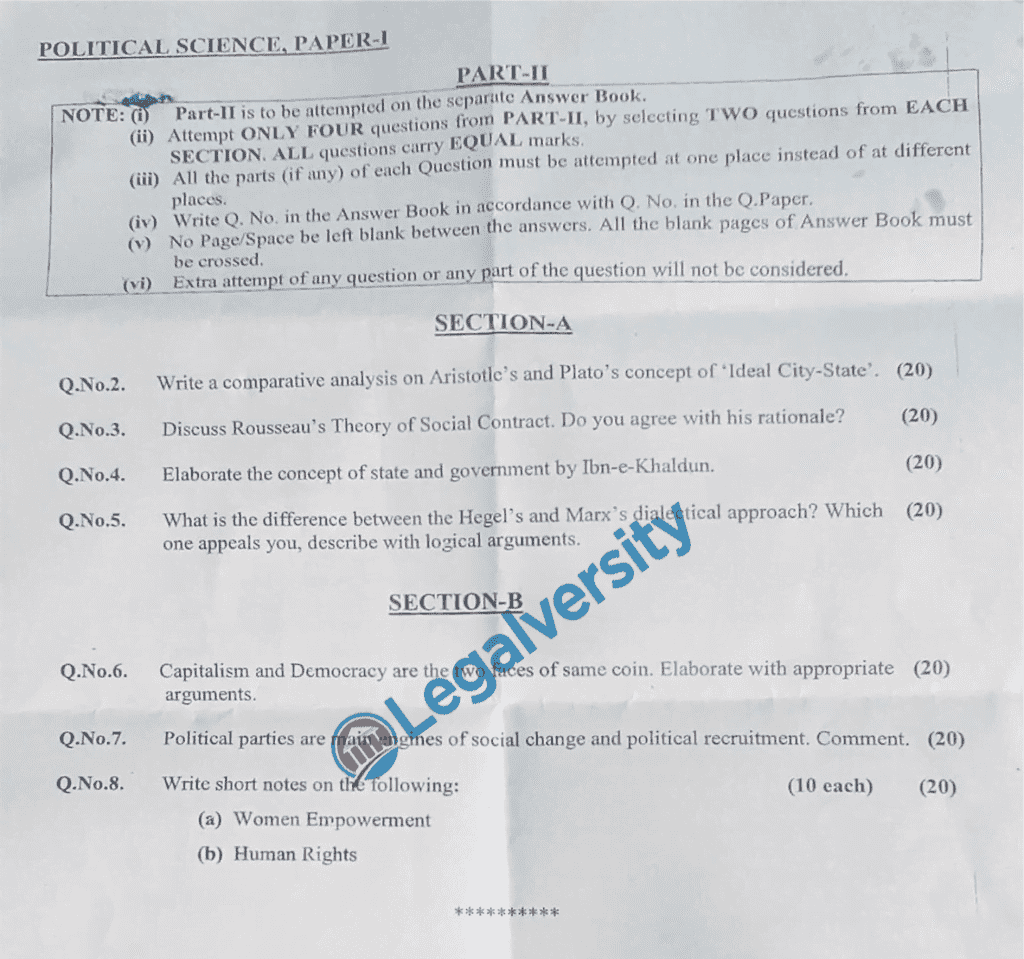Political Science is an optional subject in the CSS competitive examination 2025. Here, you will find the CSS Political Science past Paper-I 2025. I will also provide a summary of the paper, in which you will analyze what topics were given and how difficult they were. This lets you better understand the paper and prepare well for future examinations.
CSS Political Science Past Paper-I 2025
SECTION-A
Q1. Write a comparative analysis of Aristotle’s and Plato’s “Ideal City-State” concept.
Q2. Discuss Rousseau’s theory of Social Contract. Do you agree with his rationale?
Q3. Elaborate the concept of state and government by Ibn-e-Khaldun.
Q4. What is the difference between Hegel’s and Marx’s dialectical approach? which one appeals to you, describe it with logical arguments.
SECTION-B
Q5. Capitalism and Democracy are the two faces of the same coin. Elaborate with appropriate arguments.
Q6. Political parties are the main engines of social change and political recruitment. Comment.
Q7. Write short notes on the following:
Critical Evaluation of the Paper
The CSS Political Science paper includes a mix of contemporary and classic political issues, testing the comparative and analytical skills of the candidates. The first question regarding Plato and Aristotle’s ideal model city-states probes fundamental political philosophy, as Plato’s utopian vision is set against Aristotle’s utilitarian model of the state. The question asks the candidates to compare ideals with the principles of governance.
Rousseau’s Social Contract theory is a pillar of contemporary democracy, focusing on collective will and participatory government. Yet, its vulnerability to being invoked to support authoritarianism makes it problematic. Likewise, Ibn Khaldun’s state and government theories offer a distinctive sociological point of view, with a focus on the political role of social cohesion. His cyclical theory remains pertinent to political decline and renewal explanation.
The thought process used by Hegel and Marx indicates a fascinating resemblance. The idealism of Hegel understands history in terms of the progress of ideas and Marx’s materialism identifies alterations as economic activities. This topic requires one to be familiar with various assumptions and their implications in the real world.
The relationship between capitalism and democracy is a significant conversation. Capitalism endorses financial freedom, yet tends to make imbalances between individuals worse, something that defies political equality. Candidates have to navigate around this contradiction and present a balanced argument.
Political parties as agents of social change and recruitment emphasize their dual function in democracy. Although necessary for political engagement, parties are susceptible to being used as instruments of individual power struggles. This question probes candidates’ capacity to think critically about both their democratic and dysfunctional functions. The short remarks on women’s empowerment and human rights underscore the importance of justice in society. Women’s rights are crucial to economic development, but cultural and system barriers persist. Human rights abuses remain a worldwide issue, and law and institution reforms are required.
The paper needs a good understanding of ideas and clear thinking. It asks candidates to work with both theory and real-life political situations, checking how well they can analyze government, beliefs, and fairness in society.
View the paper


Also read:

Wonderful work done, but i think you can make the easy part editable so that we can also show working and try see our strength. Keep the good works up bravo!
Impressive work, but, certain samples of answers should also be introduced alongside the questions. And, most importantly, online assessment system should also be launched so that we may test our capabilities.